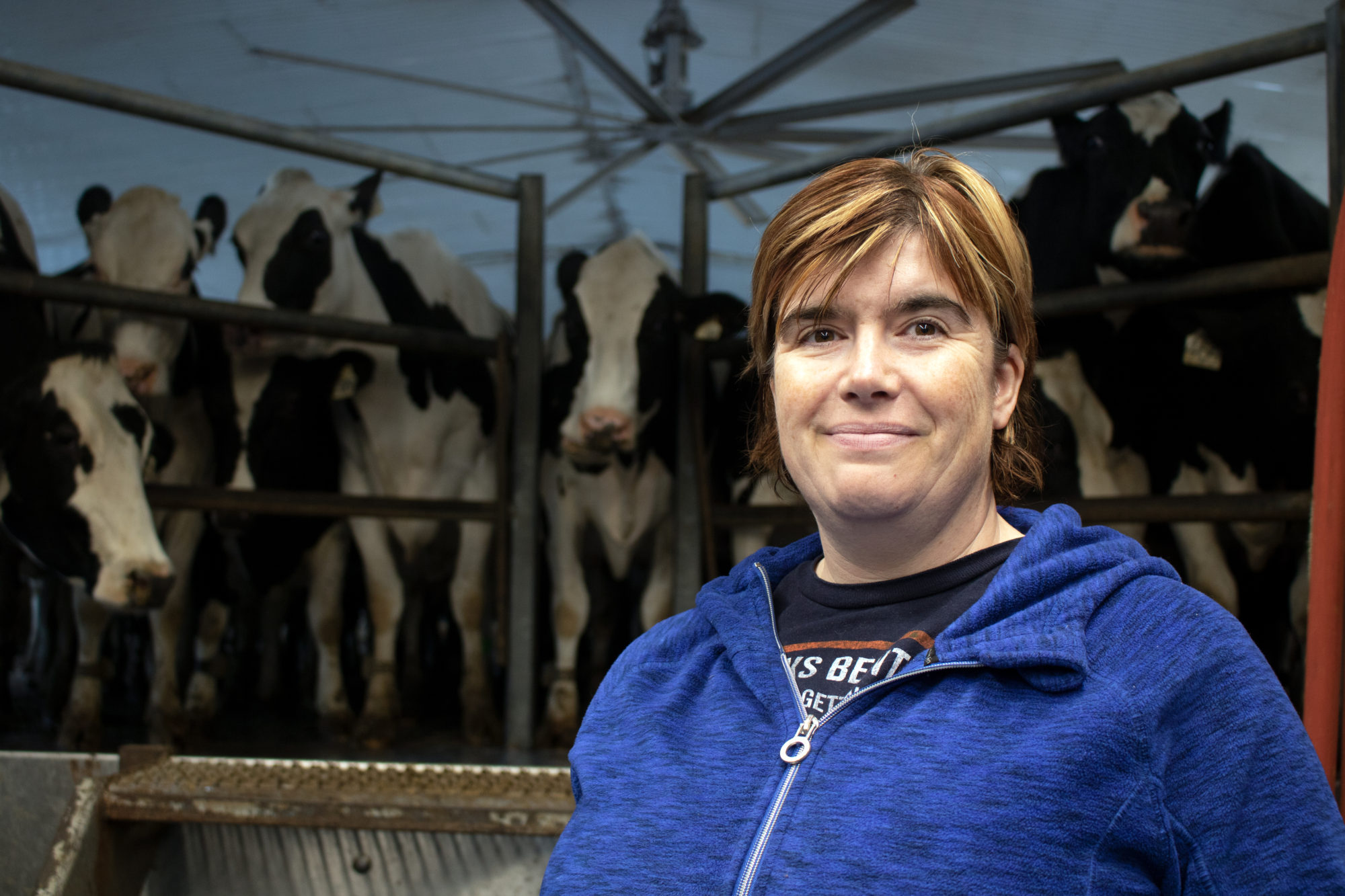Even with the USMCA looming, Windsor-Essex dairy industry continues on

Vicky Morrison, 42, is the matriarch of Bally Bright Farms family, looking after over 200 cows each are milked two or more times a day. (Photo by Ryan Percy)
By Ryan Percy
At five in the morning, the alarms begin to go off and Vicky Morrison starts her day. Morrison, 42, has lived around cows her entire life; she grew up on an Irish farm, studied ruminant nutrition and eventually left Ireland to begin her own dairy farm in Canada.
Corn flakes and cold milk right from the tank is breakfast at Bally Bright Farm before doing chores and getting cows ready for milking. Over 200 cows live on the farm and Morrison knows each by name from a glance.
The cows are fed and brought into the milking parlour in groups for milk collecting. Morrison and her children even give the more skittish cows a calming hug before they get milked.
The air is country manure and a faint whisky aroma from the mulched and fermented feed the cows seem to enjoy by the amount they eat. Bally Bright milk is collected and when the milk truck comes the dairy is tested for antibiotic residue. When it passes it gets pumped away to be brought to Galati cheese, eventually covering almost every pizza eaten in Windsor-Essex. All the cheese from the eight farms in Essex gets mixed together to melt over dough and red sauce.
However, with the United States-Mexico-Canada Agreement announcement there is a somber anticipation in the air. But this will not stop Morrison and her clan from milking away.
“We’re keeping going, we’re not stopping,” Morrison says over a copy of Holstein Sires, they’ve decided to go with a bull stud named Rumble.
“To be fair, the government has actually not released the text of what they’ve agreed to to us, anything we’ve discovered has been from the American texts. How are we supposed to prepare for what you’ve done to our markets if you haven’t told us what you’ve done? We can’t market skim milk powder outside of Canada now.”
Come 10 a.m., Morrison is not the only person working and worrying about the coming milk trade with the U.S.
Inside a white garage on a quiet street in Emeryville, Ont., Sarah Barrette opens up her shop for the day. The Cheese Bar launched in 2015 at the Walkerville Night Market after Barrette left her yachting career, serving Kate Winslet and former prime ministers, and opened up her own business.
You could jump from one end of the store to the other, the slightly sour-sweet scent embracing the nose from pumpkin orange wheels in black rinds and white blocks stacked high. Around 93 per cent of the cheeses are Canadian, with 75 per cent being from Ontario, including Galati mozzarella. As she slices cheese for a platter with thin wire she talks on the trade deal impact with a hopeful air.
“I think that as long as it’s a gradual decrease over the next five to 10 years and not overnight we should be able to handle the shift,” she says as she wraps the yellow black back up.
“Consumers need to understand and know what they are drinking and consuming,” Barrette continues as she rolls pieces of meat up to plate alongside her cheese. “It’s up to us to ensure our customers know and make the right decisions.”


